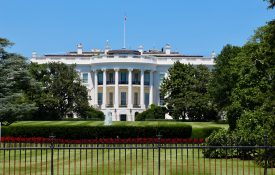-
Revisiting the ‘hormone of love’
It’s been more than a decade since oxytocin was first heralded as the “hormone of love”—a distinction that came with optimistic predictions for future drug therapies. It was just a matter of time before an oxytocin nasal spray would be available on pharmacy shelves, with the potential to cure shyness and dampen anxiety and, perhaps, even treat the social deficits of autism. The excitement was not confined to the popular press. The early animal studies, which showed a link between oxytocin and sociability, generated considerable interest in scientific circles as well, and indeed led to a decade of intense study of the hormone.
-
The new (and nastier) ageism
America is a rapidly graying society. This demographic trend has been underway for a while—and anticipated for a long while—yet some of its implications are just now coming into focus. Most notably, the aging of America will almost certainly trigger a retirement crisis, with elderly boomers competing for limited financial and medical resources—and working longer just to stay afloat. The elderly have never been honored in American society. They have more often been stereotyped, stigmatized and pitied as outdated and weak, both physically and mentally.
-
A Good Meal: The Science of Savoring
There’s nothing I like more than sharing a good meal with friends and family. I like everything about it—the shopping for fresh ingredients, the chopping and cooking, and most of all, the mindful savoring and good conversation at the table. If I have time. Which I don’t many days, and I confess that on those days, dinner is often as not a salad or sandwich on my lap, as I watch NCIS reruns. I know this is a bad habit, but it’s just easier not to fuss. A lot of people are opting out of traditional meals in this way. Indeed, one study says that more than half of Americans’ meals are now eaten in a room with the TV on.
-

The 10 Most Narcissistic U.S. Presidents
A personality trait called “grandiose narcissism” has been tied to greatness in U.S. presidents—and also malignancy.
-
Hail to the Narcissist: POTUS and Personality
Looking back on all the U.S. presidents, certain ones clearly stand out as larger than life. Andrew Jackson, TR, LBJ—these were flamboyant and domineering men, and also great leaders. Some might quibble about who among these had the biggest personality, but no one would put Calvin Coolidge or Millard Fillmore in their company. Yet our greatest leaders often have dark sides as well. Old Hickory was a violent man, a duelist and killer. The macho TR, the youngest and most popular president sworn into office, was ultimately rejected by the nation. LBJ waged the most unpopular war in American history, withdrawing from public life in the face of certain defeat.
-
A Cognitive Earthquake: Who’s Really In Need?
In January 2000, an earthquake shook China’s mountainous Yunnan province. It was a moderate earthquake and killed only seven, but it leveled more than 40,000 homes and injured thousands of residents. According to the World Health Organization, as many as 1.8 million were affected by the disaster, and in need of shelter, medical attention or other aid. A couple years later, an earthquake hit the Iranian city of Bam, a tourist center once famous as a Silk Road trading post. This disaster took the lives of almost 27,000 and affected another 270,000. Every natural disaster, whatever the WHO tallies, is tragic for somebody, and the world’s citizens always respond in humanitarian ways.

